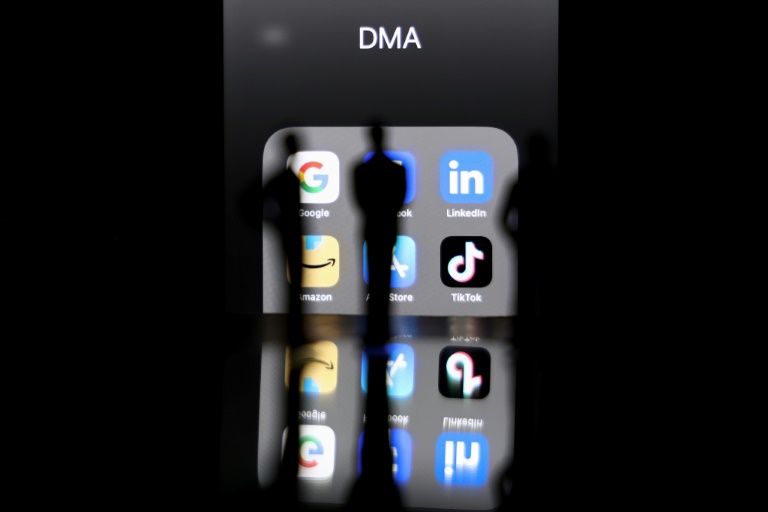Europeans woke up to a new digital landscape as landmark regulations imposed tough competition rules on major tech platforms, reshaping their experience with phones, apps, browsers and more. The Digital Markets Act (DMA), enforced by the European Union, has ushered in sweeping changes affecting some of the world’s most widely used tech products, including Apple’s app store, Google search, and messaging platforms like Meta’s WhatsApp. This marks a significant shift in global efforts to rein in tech giants accused of anti-competitive practices and harming consumer interests.
AFP
The DMA’s broad obligations apply exclusively to the EU, leaving users in other markets enviously eyeing the enhanced features implemented in response to the directive. Apple’s decision to allow EU users to download iPhone apps via third-party app stores for the first time since the App Store’s inception 15 years ago signifies a seismic shift in its operating model. Similarly, Google’s commitment to alter search results to promote independent comparison-shopping or travel-booking sites and offer Android users a choice of browsers and search engines underscores the transformative impact of the DMA on tech behemoths.
The regulatory landscape is evolving rapidly, with messaging apps like Signal and Viber expected to gain interoperability with Meta’s Messenger and WhatsApp platforms, fostering greater competition and consumer choice. Streaming services like Spotify and Netflix could also offer discounts within their apps to subscribers who purchase through their websites, a move aimed at breaking the dominance of proprietary in-app payment systems.
The EU Digital Markets Act primarily impacts major U.S. tech players such as Alphabet, Amazon, Apple, and Meta, among others, with potential fines of up to 10% of global revenue for non-compliance. These regulations target firms designated as “gatekeepers,” characterized by their significant market capitalization and large user base in the EU, aiming to promote fair competition within the bloc. For instance, these companies are mandated to avoid favoring their own services over competitors’ offerings on their platforms. For example, Google is prohibited from compelling users to choose its search engine on Android devices and must provide alternatives like DuckDuckGo or Ecosia.
European policymakers have long criticized tech companies for monopolistic practices and data exploitation, while the companies argue that they foster competition and drive economic growth. Bill Echikson, a non-resident senior fellow at the Center for European Policy Analysis (CEPA), suggested that the EU reforms represent a maturation process for technology giants, transitioning them from “teenagers” to “grown-ups” in terms of regulatory oversight and responsibility.
Europe’s proactive stance on tech regulation contrasts with the United States, where similar legislative efforts have stalled amid industry opposition and political gridlock. Despite concerns raised by tech companies about unintended consequences and consumer dissatisfaction, proponents of the DMA believe it will foster a fairer digital market and empower consumers. However, challenges remain, including potential evasion tactics by companies and the need for robust enforcement mechanisms to ensure compliance.
The DMA’s impact extends beyond the EU, influencing global tech policies and shaping the future of digital competition. As tech giants adapt to regulatory pressures, consumers stand to benefit from increased choice, transparency, and competition in digital markets.
“We have worked really hard at the EU level to get this law adopted to improve digital markets in benefit of consumers,” stated Agustin Reyna, legal director at BEUC, a coalition of EU-based consumer advocacy organizations.
European union
Apple inc.
Google
2024-03-10 23:41:02
Article from www.ibtimes.com
